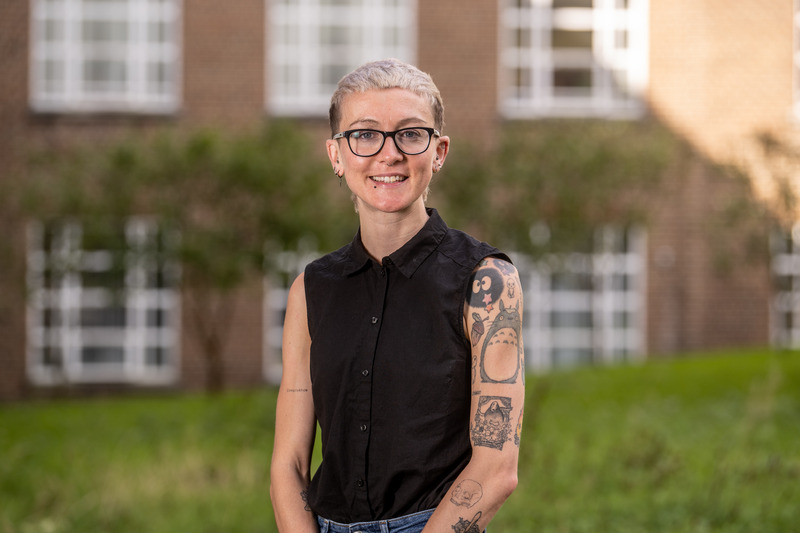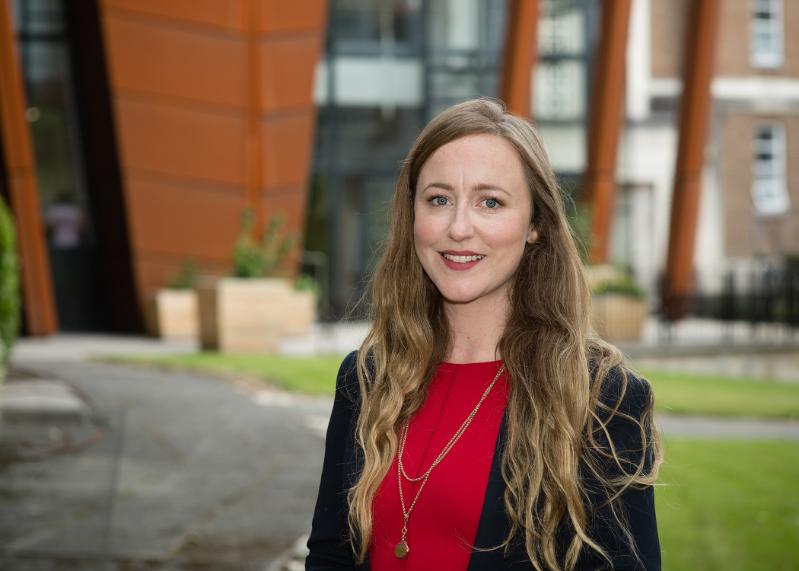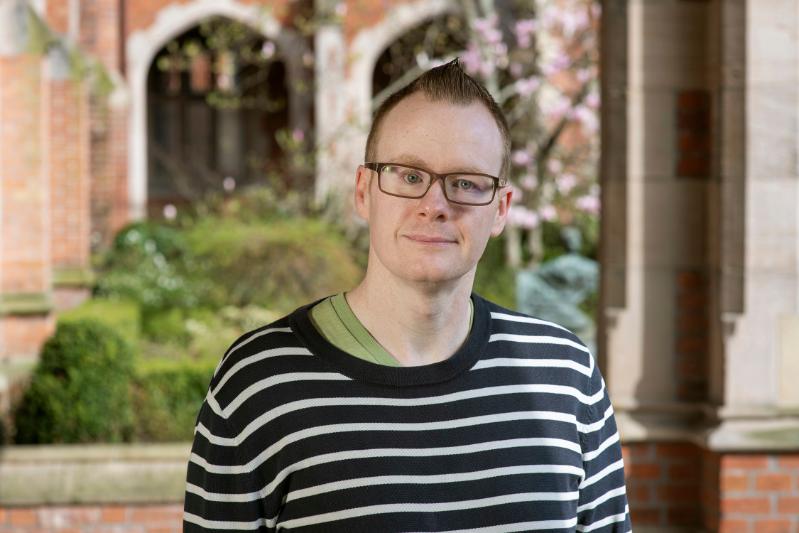CIHRQOL
Centre for Improving Health-Related Quality of Life (CIHRQoL)
Members of the Centre for Improving Health-Related Quality of Life (CIHRQoL) are psychologists with expertise in health psychology, clinical psychology, methodology and quantitative and qualitative analysis. Our research focuses on the development of effective interventions and the identification of valid and reliable outcome measures.
Members of CIHRQoL have a wealth of research experience in modelling the psychosocial factors that are associated with quality of life (QoL); using this information to develop interventions and examine their feasibility; and evaluating these interventions in terms of their effectiveness. We recognise that the ability to determine the effectiveness of an intervention is governed by the appropriateness of the outcome measures that are used to assess QoL. Yet, QoL is a complex phenomenon, and so our research experience and methodological and statistical expertise in the development and evaluation of outcome measures ensures that CIHRQoL is extremely well-placed to develop outcome measures and advise on discriminating between existing outcome measures.
To date, our research has focused on people with persistent physical symptoms (pain, cough, breathlessness) and medical conditions such as cancer, heart disease, diabetes, stroke and among people receiving palliative care. Recognising the impact of long-term illness on not only the person with the illness but also on those who care for them, our research is also concerned with improving the QoL of family members and with the QoL of health professionals.
Our research has also focused on mental health constructs including the measurement and modelling of psychological trauma, psychosis, addiction and related constructs using a range of methodological and statistical approaches.
We work in close collaboration with a number of health professionals across the HSC Trusts in Northern Ireland and in health care settings and universities across the world. Members of the Centre have attracted funding from the Economic and Social Research Council (ESRC), Engineering and Physical Sciences Research Council (EPSRC), National Institute for Health Research (NIHR), Marie Curie, Health Foundation, Northern Ireland Chest Heart & Stroke, the local R&D Office and local HSC Trusts.
Research Resources
NHS Treatment and Supports Costs
Recent Publications
Academic Staff |
|
PhD Students |
|---|---|---|
| Prof Martin Dempster | m.dempster@qub.ac.uk | Juliana Abboud |
| Prof Kevin Vowles | K.Vowles@qub.ac.uk | Stephen Clarke |
| Prof Pauline Adair | p.adair@qub.ac.uk | Madeleine Dalsklev |
| Dr Donncha Hanna | donncha.hanna@qub.ac.uk | Rachel Johnston |
| Dr Lisa Graham-Wisener | l.graham-wisener@qub.ac.uk | Rachel McIlveen |
| Dr Jenny Groarke | Katie O'Donnell | |
| Dr Paul Toner | p.toner@qub.ac.uk | Callum Urquhart |
| Dr Emma Berry | e.berry@qub.ac.uk | |
| Dr David McCormack | d.mccormack@qub.ac.uk | |
| Dr David Curran | d.curran@qub.ac.uk | |
| Dr Brent Thompson | ||
| Dr Christopher Graham | christopher.graham@qub.ac.uk | |
| Dr Marc Edwards | Marc.Edwards@qub.ac.uk | |
| Dr Sharon Millen | s.millen@qub.ac.uk |
There are a number of exciting research projects ongoing at the Centre for Improving Health-Related Quality of Life, such as the SPINE-COS-AYA project which started in April 2021 and the MusiCARER project which commences in Summer 2021.

At present, I am co-investigator on a project called ‘ImpACT Stroke’ which is focused on modifying Acceptance and Commitment Therapy (ACT) for Stroke Survivors living with significant neurocognitive effect through co-design methods and feasibility testing. This project compliments a pending grant application which aims to adapt ACT for individuals with High Grade Glioma (level 3 or 4 brain cancer). I am also supervisor to a PhD student who is exploring emotional support needs among parents of young children with Type 1 diabetes and who will be investigating the acceptability of an adapted ACT intervention to facilitate emotional resilience and augment parent/child health outcomes. Related to this, I am keen to pursue research examining the acceptability and potential benefits of peer support for parent of children newly diagnosed with Type 1 diabetes, and I am in the initial phases of planning this. Additionally, I have an interest in utilizing art to facilitate communication of health information, for instance through the use of comic-based resources. I am currently developing projects which explore the use of comics and illustrations to convey mental health and environmental health information.

Although much of my research is focused on improving the quality of life of people with long term conditions, it is also important to acknowledge the impact of long term conditions on family members and health care professionals. As an example of this research, I have recently been involved in surveying the levels of psychological well-being among medical doctors across the UK via the Royal Colleges and other medical organisations. A total of 1651 doctors participated in this study and the results showed that almost 32% reported high levels of burnout; about 26% had high secondary traumatic stress and about 31% had low compassion satisfaction. These findings show poorer levels of psychological well-being that for other professions. Our research also showed that coping strategies used by doctors were associated with these outcomes. In particular, doctors who used self-blame as a coping strategy were more likely to experience secondary traumatic stress. The research is an important first step in identifying the types of interventions that might be useful in helping to improve the psychological well-being of our medical staff. https://bmjopen.bmj.com/content/10/1/e031765.full https://www.theguardian.com/society/2020/jan/27/third-of-uk-doctors-report-burnout-and-compassion-fatigue

We recently completed one of the first studies examining an integrated treatment for opioid misuse and chronic pain. This clinical pilot study was funded by the National Institutes of Health and sought to examine the efficacy of an intervention targeting pain interference and opioid misuse in a sample of military veterans in the United States. The integrated treatment consisted of Acceptance and Commitment Therapy for chronic pain and Mindfulness-Based Relapse Prevention for opioid misuse. Outcomes indicated that the treatment was feasible, as retention and participation were excellent. Furthermore, in comparison to treatment as usual, the integrated intervention was associated with larger reductions in pain interference and opioid misuse at a six month follow-up. A detailed report of these findings is currently in press at the Journal of Pain (doi.org/10.1016/j.jpain.2019.11.007). We were recently funded for a five year project to replicate and extend these results in a fully powered clinical trial.

The bulk of my research has been developing and evaluating interventions on health-related outcomes and in chronic conditions. For example; a cognitive behavioural stress management intervention for women with breast cancer (Groarke, Curtis & Kerin, 2013; Groarke et al., 2017), a health behaviour change intervention for cancer survivors with obesity (Groarke et al., 2019), and music listening for stress and anxiety reduction (Groarke & Hogan, 2019; Groarke, Groarke, Hogan, Costello & Lynch, 2019). At the moment I am develop a research programme around the effectiveness of arts-based interventions for distress reduction in different health settings (eg., NICU) and for different patient groups (eg., cancer patients and their carers).

Alcohol screening and assessment measures for young people I led the first comprehensive evaluation of all the available diagnostic and psychometric research evidence on alcohol screening and assessment for young people. In doing so, I directly addressed a key research question posed by UK clinical experts, “Which screening tool should be considered as the 'gold standard' for assessing the drinking behaviour of those under the age of 18?” Through this rigorous review, I provided policy-relevant recommendations for practitioners and researchers on how best to screen for alcohol use and problems in young people. This research will potentially change clinical practice internationally. To further advance the field, I then co-produced, with input from c.1,600 young people, reliable and valid items which outperformed existing measures to assess the continuum of alcohol-related risk and harm. This work is important because there is consistent evidence that higher alcohol consumption in late adolescence continues into adulthood, and is also associated with alcohol problems including dependence. This means that having efficient measures to assess drinking among young people potentially offers opportunities for early interventions.
